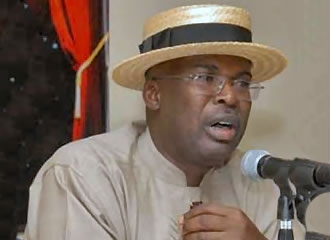Dictator Bashar al-Assad who ruled Syria for 20 years abdicated power on Monday 8, 2024 says in hiding that Syria has fallen into the hands terrorism.
Assad stated in a statement also said that he moved to Russian airbase in Syria on December 8, 2024 after the country fells in the hands of terrorists but that he was asked to leave when
It came under attacks.
The road to Damascus was surprisingly shut on Sunday as Syrian rebel groups took control of the capital after a lightning-fast offensive across the country.
Dictator Bashar al-Assad abdicated power and left Syria, according to Russia, his most powerful patron. How did this happen so swiftly after such a long period of stasis in Syria’s thirteen-year civil war?
And what comes next for Syria, the Middle East, and the external powers that have been shaping events there? Below, experts provide answer to these urgent questions and others.
The long suffering of the Syrian people under a brutal regime that killed, tortured, dispossessed, and exiled millions of its people has ended.
Iranian hegemonic project in Syria, too, has ended, and with it Hezbollah’s privileged position. While the future of Russian bases, the US-backed Syrian Democratic Forces in northeast Syria, interim governance, counter-terror activities, and Syria’s new role in the region may take months to take shape, it is clear today that Syria will be ruled by an opposition coalition with the support of a majority of Syrians.
Several analytic toplines stand out at this early stage. First, Assad’s hold on power was far more tenuous than was broadly perceived internationally, especially by those counseling reconciliation and normalization.
Second, Iran and Russia have suffered a dramatic loss of influence in Syria and the region as a result of wars in the Middle East and Ukraine, making it impossible for them to save Assad in 2024 as they did in 2014-15.
Third, Turkey is the only country that seems to have had a winning strategy for Syria: opposing Assad while negotiating with his backers, hosting refugees, supporting the opposition politically and militarily, and combating the People’s Defense Units (YPG), an offshoot of the anti-Turkey terror group Kurdistan Workers’ Party (PKK), in northern Syria. Ankara now has unrivaled economic, diplomatic, and military leverage over the stabilization and rebuilding process, and the goodwill of an overwhelming number of Syrians.
Fourth, the US approach to Syria for the past decade—tolerating Assad and his Iranian patrons, hyper-focusing on the Islamic State, providing humanitarian assistance but ceasing political and military aid to the opposition, giving open-ended support to the YPG/PKK—has collapsed. Washington, and Jerusalem, will have to come up with a coherent and constructive approach to the new management in Damascus.












